KRISIS
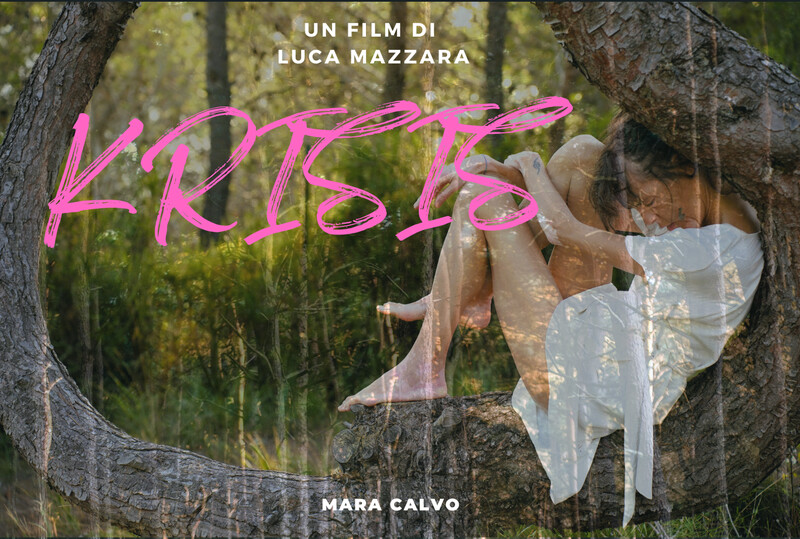

Synopsis
Krisis is a short movie that follows the emotional journey of a woman facing mental and physical illness and the isolation caused by painful events. Through the contact with nature, she transforms suffering into a new interpretation of life, discovering the inner strength to overcome pain and embrace joy. An ode to human resilience and the healing power of nature.
In his short film KRISIS, Italian director Luca Mazzara takes on the challenge on adapting a poem to the screen. Probably the words were written by himself, though the screenplay is credited to him and Beatrice Sabbatini. The result seems loyal to what the text intended to express, and to achieve it Mazzara betakes both literally and symbolic images, in addition to the music and the lighting that help to create a sensorial experience.
Directed by
Luca Mazzara
Luca Mazzara
Written & Produced by
Cast
Mara Calvo, Gianfranco Migliorelli
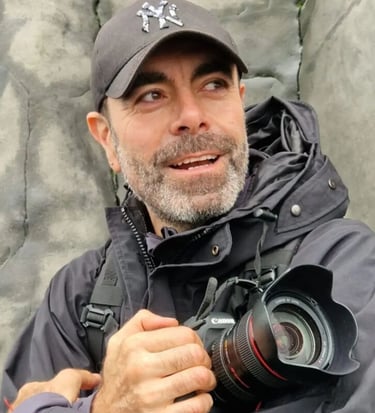

Luca Mazzara
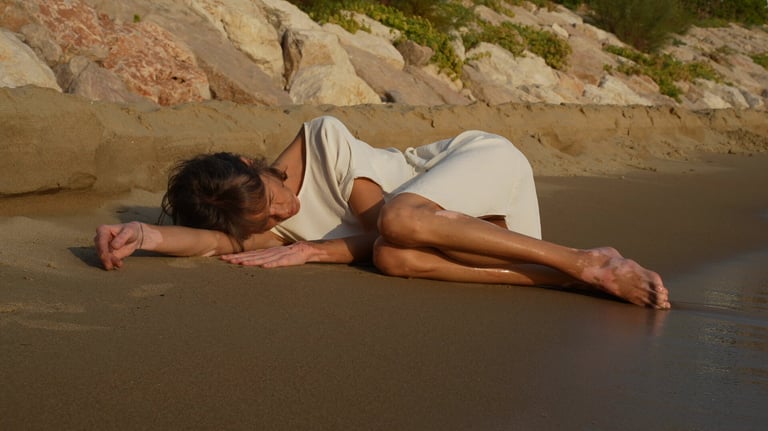

The opening shot is so well filmed that already shows that Mazzara knows where to place the camera and how to move it. It is a very short cut, that captures the top of the trees and then tilts down until the sea is visible. This feeling of tranquility is broken by the contrasting next shots, that depicts the disturbed protagonist – she brushes the floor in a frenzy, has trouble to sleep, looks at a twisted tree.
The following scene introduces the voice over that reveals her name (Zoe) and literally illustrates the verse of the poem: the face of the woman is in a dark place, and the fire light casts a shadow behind her, while the words say “In a world of shadow, Zoe wanders alone”. By the end of this same scene, another literal image exposes the wind and the sea mentioned in the sentence.
In the soundtrack, the percussion creates a disturbing mood, intensifying the awkwardness of seeing Zoe sleeping in the shallows of the sea or in bed as if drowning (the overlap of water over her face is a clever resource to achieve this sensation). Then she lays asleep on the twisted tree, while the narration confirms what the images already have shown, this time not literally but metaphorically. One of the verses discloses the loss that causes her grief, proving that in this movie the words are also important.
When the music changes, to a melodic piano tune, it is to establish a positive turn in Zoe’s attitude. She climbs up some stairs with a smile, the sun is bright and the plants around seem to welcome her. The rhythm of the music fastens while the camera films her steps. However, a scream, that is not heard, breaks this tentative recovery.
The tone of the film gets more somber, as Zoe falls again in another depressive attack. The next shots are oppressive, and the symbolism of the burden of carrying a cross is strong. There’s also a silent cry for help, looking directly to the camera, which causes discomfort in the viewer. In the end, she finds strength in the sun – this recovery is expressed with a beautiful image that frames the setting sun reflected on the sea in a straight line that shines on Zoe, who is in the shore facing it.
KRISIS correctly chooses the non-narrative form to adapt a poem to the screen. Free as the verses, the mise en scène experiments with various elements to provoke in the viewer the pain and relief that the protagonist is feeling. It is sensorial, as poems tend to be.
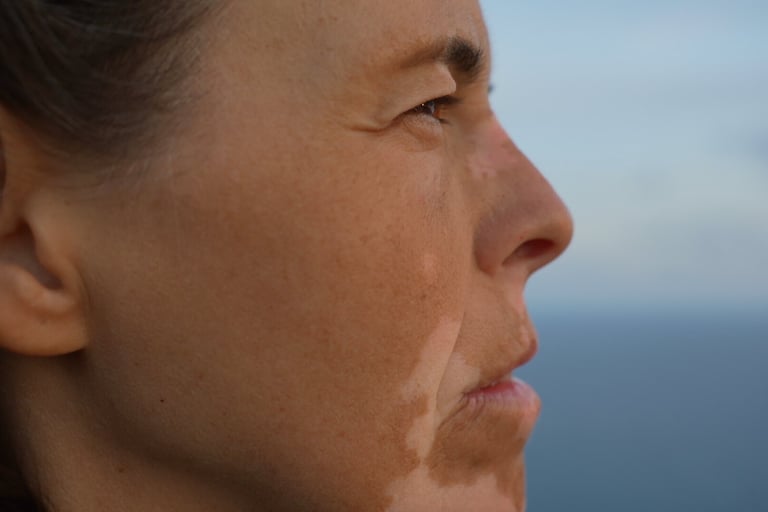

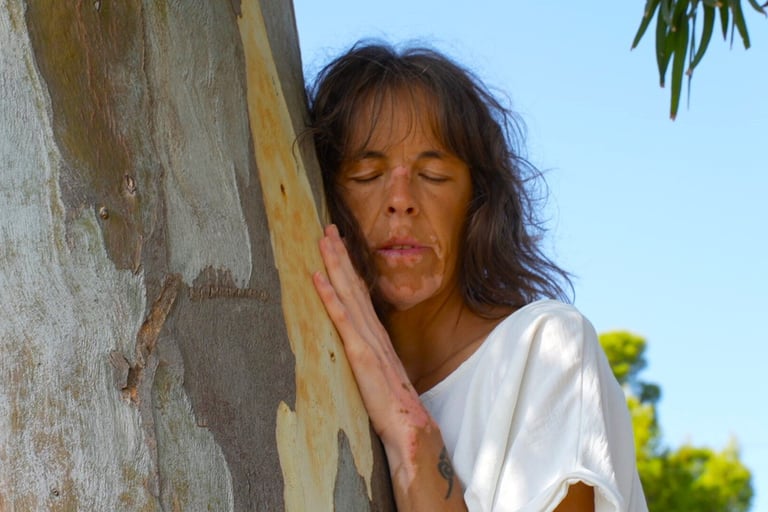

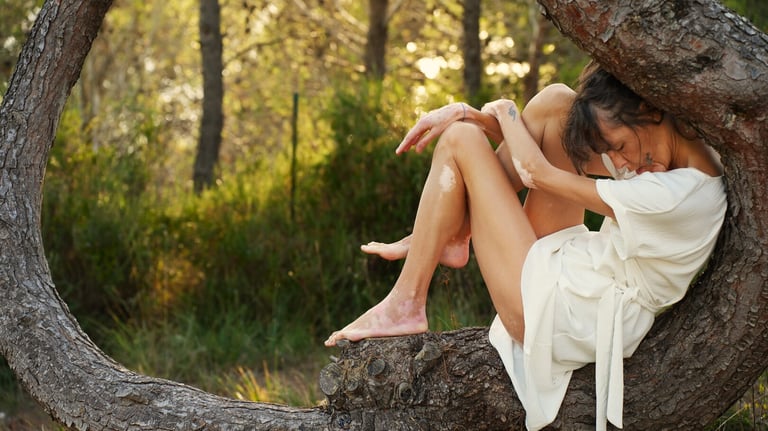

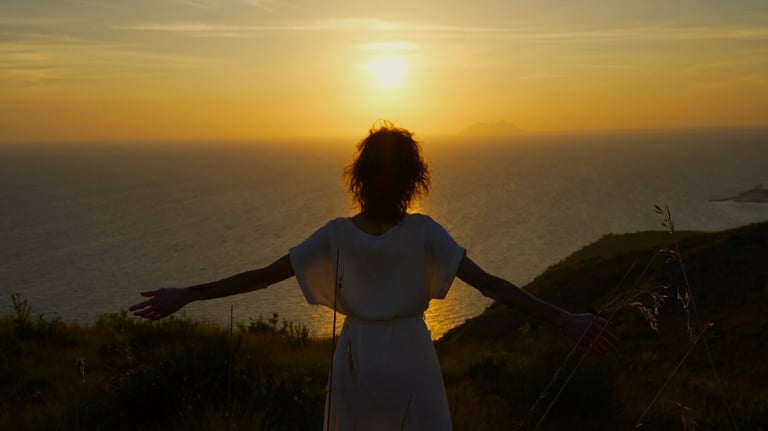


2024, Italy, 11 min


Eduardo Kaneco
Film critic, the founder of Leitura Filmica




